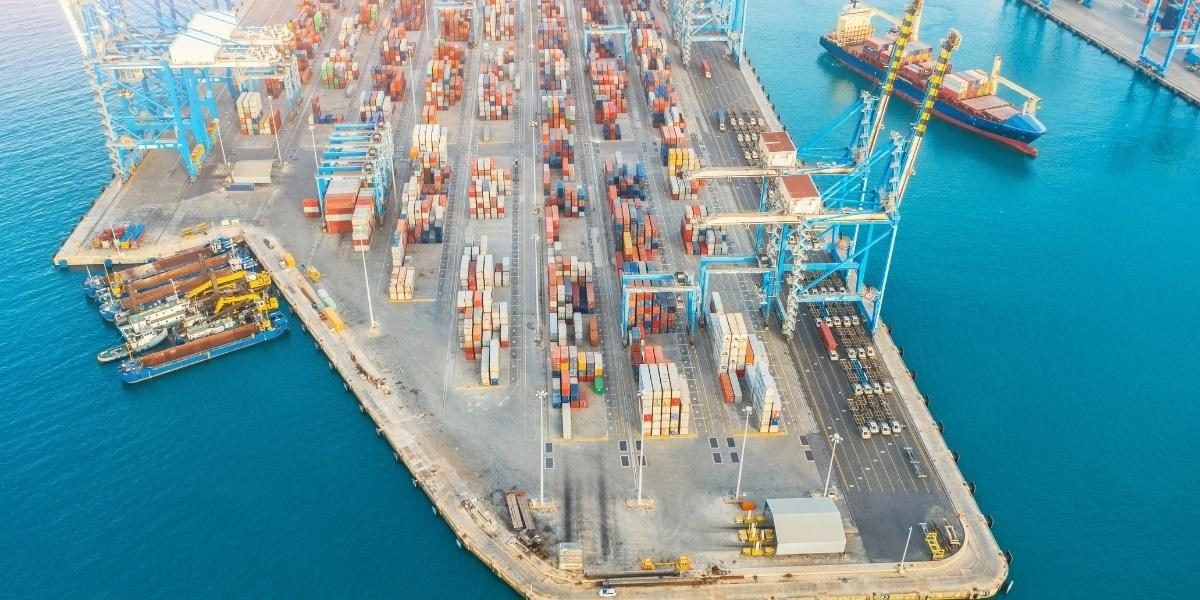The ongoing trade relationship between the U.S. and China is often a source of volatility for investors, especially in sectors like global trade, shipping, and logistics. Recently, a significant development has taken place: the U.S. suspended its port fees on Chinese-linked shipping vessels, triggering both economic and investor interest across Wall Street. The move, while temporary, offers an opportunity to evaluate the longer-term implications on shipping costs, the broader trade environment, and U.S.-China economic relations. For investors, understanding these changes is critical, as the suspension will likely affect everything from stock performance to broader market sentiment in the shipping and logistics sectors.
What Led to the U.S.-China Port Fee Suspension?
In an effort to de-escalate tensions and facilitate smoother trade between the two largest economies, the U.S. decided to suspend port fees on vessels coming from China. These fees, introduced as a response to tariff impositions during trade wars, were part of a broader strategy to penalize Chinese goods entering U.S. ports. With the ongoing negotiations between Washington and Beijing, this suspension signals a potential thaw in trade relations.
The suspension, which was initially framed as a temporary solution, has far-reaching implications for both U.S. businesses and global shipping lines. While this truce is part of a broader trade agreement, its immediate effects are felt in the reduced shipping costs that impact both the global supply chain and specific industries like retail, manufacturing, and tech. With major importers and exporters relieved of added shipping costs, companies could see improved margins in the short term.
Immediate Effects on Shipping Costs and Supply Chains
The port fee suspension is a welcome reprieve for the global shipping industry, particularly given the financial strain caused by previous trade tariffs. While the suspension of port fees is just one piece of the puzzle, it is a significant one. The reduction in shipping costs will directly affect U.S. importers who rely heavily on Chinese goods. For Wall Street investors, this signals potential profitability in sectors that benefit from reduced shipping costs, such as consumer goods, electronics, and industrial manufacturing.
With lower shipping fees, global supply chains, which have been strained in recent years due to tariff wars and the COVID-19 pandemic, could find a renewed sense of stability. This also increases the competitiveness of U.S.-based businesses that rely on Chinese imports to stock their shelves, such as major retail chains like Walmart and Target, as well as e-commerce giants like Amazon. Reduced costs translate into a more efficient logistics system that could help mitigate inflationary pressures.
Long-Term Market Implications for Investors

Photo Credit: Unsplash.com
For investors, the U.S.-China port fee suspension presents an opportunity to reassess investments in the shipping, logistics, and import-heavy sectors. The temporary nature of the suspension does leave room for uncertainty, but in the short term, investors can look to sectors poised to benefit from the reduced costs. Shipping companies like FedEx and UPS, as well as maritime operators like Maersk and COSCO, stand to see improved earnings if the suspension continues for an extended period.
Industries like retail and technology, which rely heavily on Chinese imports, may experience increased profitability as shipping costs decrease. Companies like Apple, Nike, and Tesla—whose production lines are dependent on Chinese suppliers—could see improved margins as a result of this cost reduction. Wall Street investors will likely look to adjust their positions in these sectors, adjusting for both the near-term impact and long-term trends in U.S.-China trade relations.
Another long-term implication to consider is the future of U.S.-China trade relations. If the suspension of port fees signals a broader de-escalation of trade tensions, this could have profound effects on global trade policy and international markets. Investors may look for signs of further normalization in trade relations, which could lead to more stable supply chains and a potential boon for the global economy.
The Broader Impact on Global Trade and Logistics
The suspension of port fees could have ripple effects across the broader logistics and global trade industries. With U.S. ports becoming more cost-effective for Chinese goods, other countries and regions may look to negotiate similar terms with the U.S., aiming to secure more favorable shipping rates. This could usher in a period of reduced shipping costs across the board, benefiting global trade in multiple sectors.
For global shipping companies, this means an opportunity to boost their bottom lines. Lower port fees can also lead to more efficient routing and scheduling, as shipping companies can better predict costs, reduce delays, and streamline operations. This will likely lead to a reduction in overall shipping costs for goods moving between the U.S. and Asia, helping companies that rely on Chinese goods to streamline their supply chains.
Investor Strategies: Navigating the Truce and Economic Risks
While the U.S.-China port fee suspension is a positive development, it’s essential for investors to remain cautious. The volatility in U.S.-China relations, the shifting geopolitical landscape, and the ongoing negotiations surrounding tariffs could lead to a resurgence of market uncertainty in the future. Investors should monitor key developments closely, particularly those related to global trade policy, government fiscal decisions, and market reactions to further announcements.
To take advantage of this shift, investors may consider increasing their exposure to sectors like transportation and retail, where the immediate effects of the port fee suspension could offer a quick return on investment. Additionally, companies that rely on cost reductions to boost profitability, such as e-commerce firms and industrial manufacturers, could offer long-term growth potential as the shipping costs remain lower.
A New Era for Shipping and U.S.-China Trade Relations
The U.S.-China port fee suspension is a notable shift in the complex web of global trade relations. While it is a temporary measure, it offers a window of opportunity for investors to reassess sectors poised for growth, especially in logistics, retail, and manufacturing. As both countries continue to navigate their economic relationship, the broader implications for the global shipping industry cannot be ignored. For Wall Street investors, this moment is an opportunity to capitalize on shipping cost reductions, assess the sustainability of U.S.-China trade stability, and plan for the long-term effects on market dynamics.












